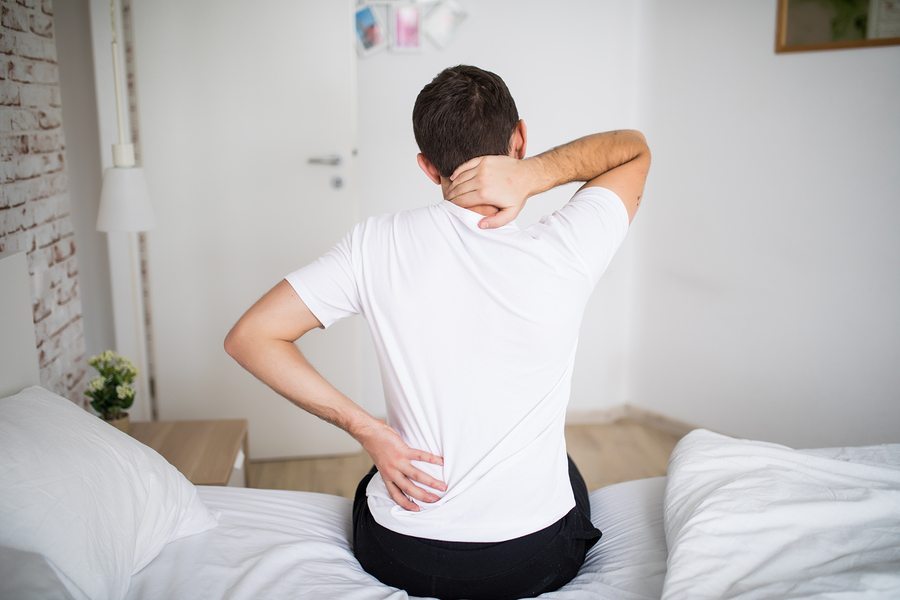Got back ache? How much did you pay for your bed? Probably far less than you did for your auto, but while many people think nothing of spending thousands on a new car, investing in a new bed is usually given much less importance.
Having a high-quality bed not only promotes better sleep and reduces fatigue, but it can also make a huge difference to one of the most common ailments of the modern world: backache or back pain.
What Causes Back Ache or Back Pain?
The reasons for back pain are many. In some cases it is caused by physical damage or a medical condition, but for most people it’s simply the result of daily wear and tear.
The muscles surrounding your spine are among the hardest-working parts of your body. Whether you’re standing, sitting, or lying down, they will be constantly adjusting your posture and balance to try and keep your spine and neck straight. Over time, this can lead to problems if the muscles don’t receive the necessary amount of support.
After a long day, your back desperately needs a chance to rest and recuperate, and this is where a good bed and mattress is vitally important. If you sleep in a poor position because of an old, lumpy, or saggy mattress, then your muscles won’t be refreshed and the pain levels will start to build.
Don’t Sleep On a Board!
It’s a widespread misconception that the best kind of bed for a healthy back is one which is extremely hard and unyielding. A board-like mattress may encourage a slightly better sleeping posture than one which is overly soft and giving, but it still doesn’t help to keep your spine and neck in the optimal position.
Finding the Right Mattress for Your Back
The ideal mattress to relieve your back ache will provide just the right amount of give without feeling like you’re lying on a sponge.
No matter what position you sleep in, your hips and shoulders should be in the right alignment to keep your spine as straight as possible, which means they should sink into the mattress a little. However, the mattress between these points shouldn’t drop down at the same time – it needs to remain firm and give support.
Many mattresses are sold on the basis that they’re good for your back. Unfortunately, terms such as ‘orthopedic’ don’t always mean so much: there’s no fixed  legal definition of what they involve when it comes to a bed or mattress. The best way to find a mattress that suits your back is simply to try lying on one in a few different positions.
legal definition of what they involve when it comes to a bed or mattress. The best way to find a mattress that suits your back is simply to try lying on one in a few different positions.
If it feels firm yet comfortable in your normal sleeping positions, then it’s almost certainly better for you than one which feels unusually hard, no matter what a salesperson may say about the benefits of sleeping on a board.
Also be wary of price. While there’s no need to pay too much just for a “back-friendly” tag, cheaper mattresses will not usually be as durable as more expensive, more solidly built ones.
They may feel comfortable at first, but often lose their firmness more quickly. Because of this, whatever price you pay, make sure this includes a comprehensive warranty so you can get a refund or replacement if necessary.
Even a Mattress Needs Support
However, a superb mattress is of little use if the bed itself doesn’t provide proper support, letting the mattress sag down when you lie on it.
If you’re adding a new mattress to an older bed frame, make sure the slats or support wires are strong enough to carry the mattress evenly. If you can afford it, it’s often best to buy a new frame and mattress at the same time so that they’re well matched and work together to provide the best support possible.
Backs bear the brunt of busy lives, even if that largely involves sitting in front of a computer in the office for hours. A good exercise regimen will be a great help, but never overlook the importance of a high-quality bed in the battle against back pain!









